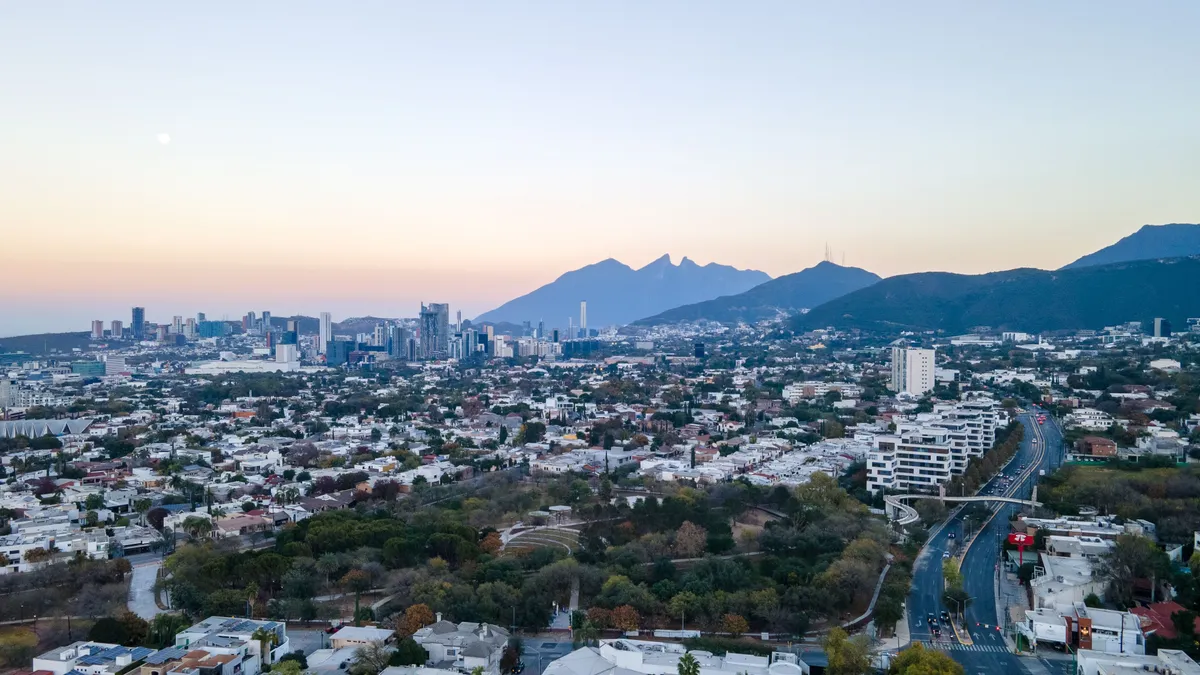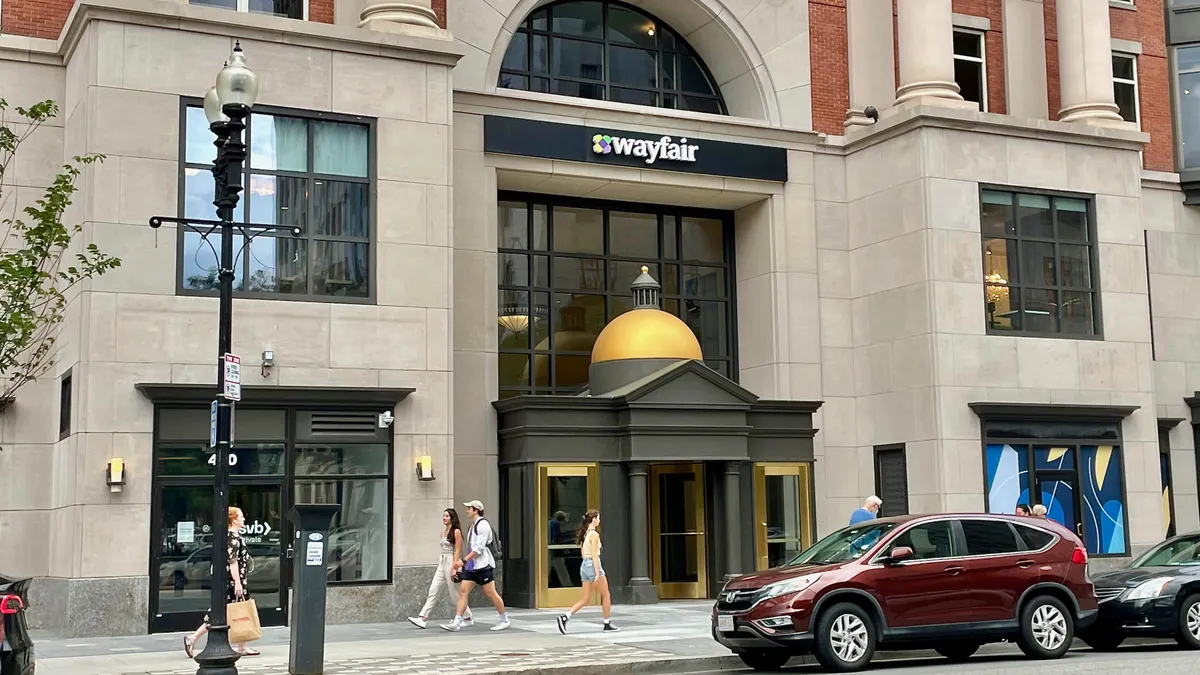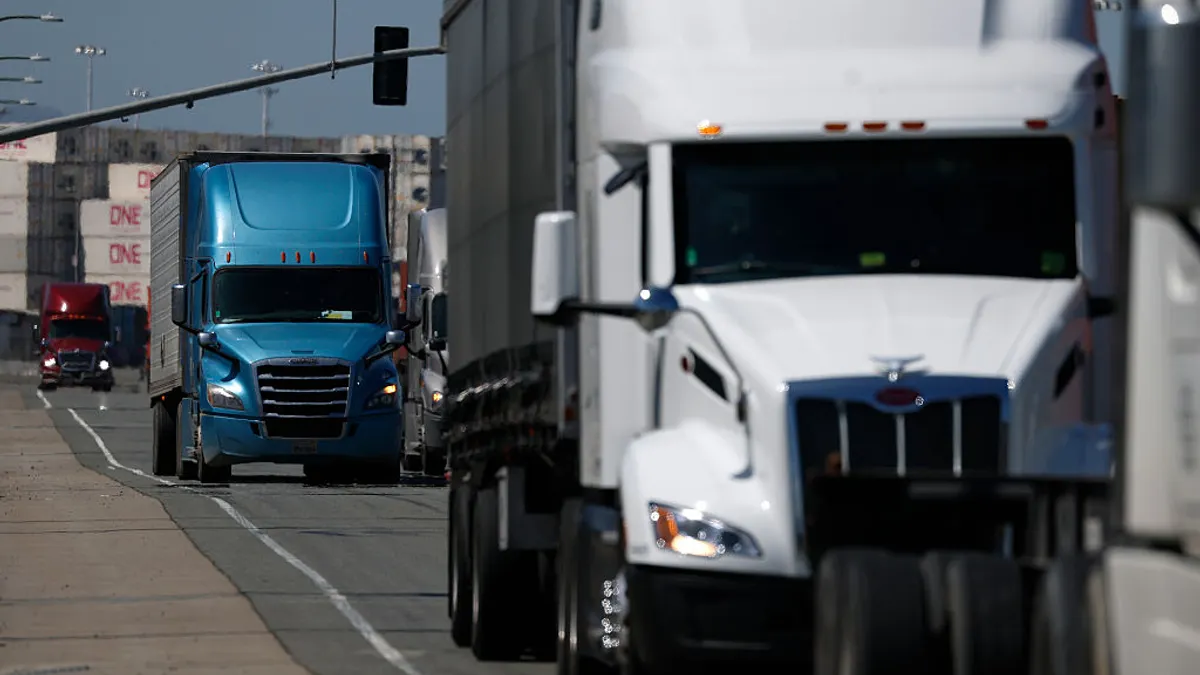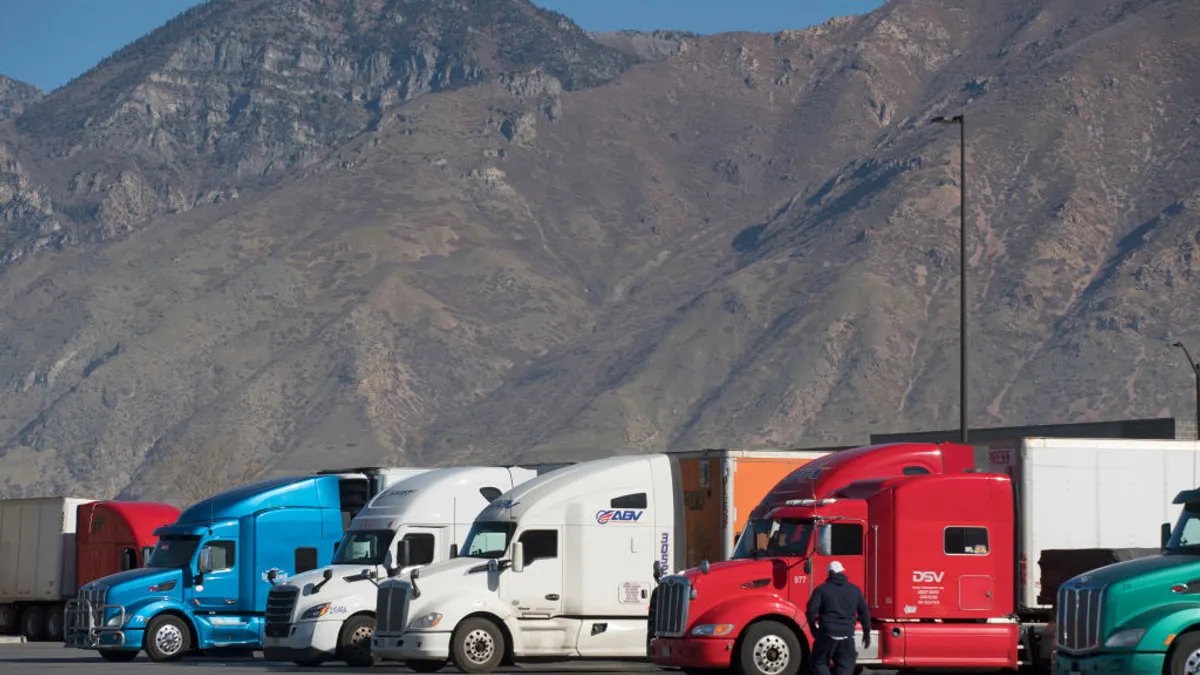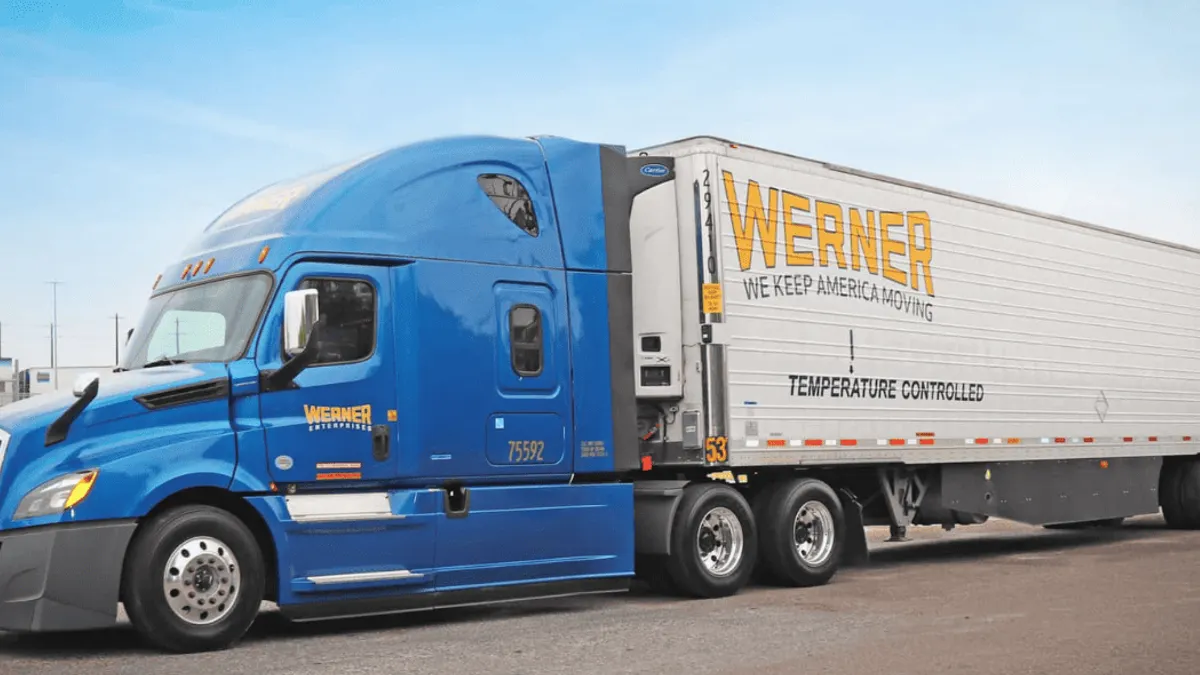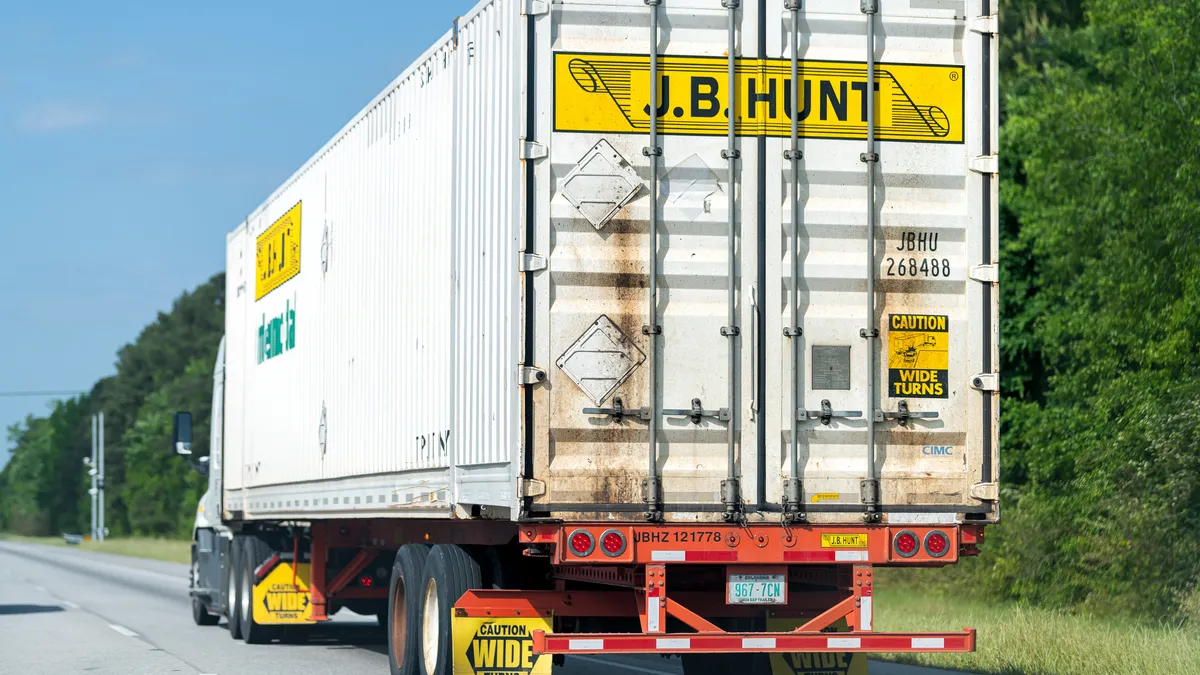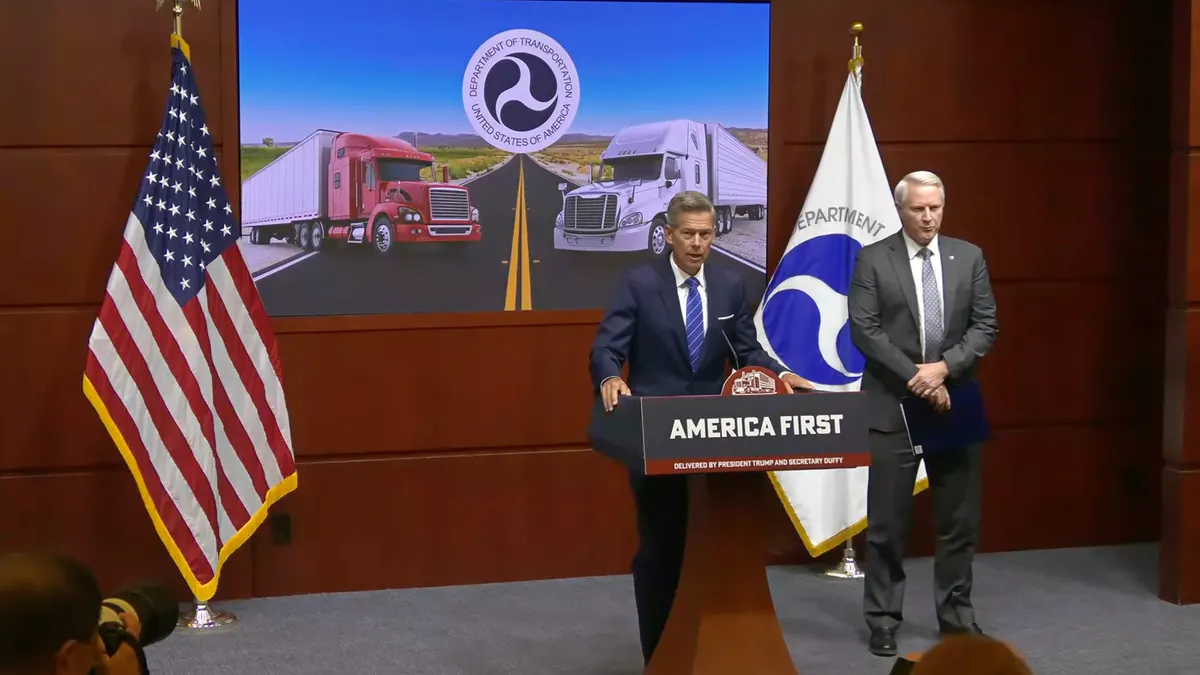Jordan Dewart has spent a 25-year career in cross-border trade between the U.S. and Mexico.

As president of Redwood Mexico, the Monterrey, Mexico-based cross-border division of Redwood Logistics, he relies on relationships he built over decades in the country leading an NYK subsidiary he founded in the late 1990s.
Longtime relationships with hundreds of carriers in Mexico enabled him to build a business that now handles more than 30,000 cross border shipments annually and is approaching $100 million a year in sales, Dewart said.
“I basically moved to Mexico and started up a company right when the NAFTA agreement was getting started,” he told Trucking Dive. “A handshake means something. Your word means something. It's a relationship business.”
In an interview, the division president shared insights on supply chain nearshoring and his bullish expectations for the future of cross-border trade between the U.S. and Mexico.
This interview has been edited for clarity and brevity.
TRUCKING DIVE: Could you tell us about Redwood Mexico?
JORDAN DEWART: We describe our business as a modern 4PL. We move freight, participate as a 3PL, as a truck broker. We have our own trucks, our own trailers, but we also leverage a huge network of transportation companies on both sides of the border. We manage freight for huge companies. We have services like logistics platform as a service, TMS, from reselling TMS, to implementing TMS.
But the most important thing, I think, we do is tie disparate systems together, really focusing on what's called the “middleware.” All of these great systems, all these great platforms, in the industry don't talk to each other and it's really expensive to connect. With Redwood Connect, we connect, in very simple terms, anything to anything.
We have over 30,000 U.S. trucking companies under contract through our TMS. We have over 150 staff, what we would call “boots on the ground,” doing a range of different services like customer service, tracking, tracing, carrier sales, truck brokerage, all the way to the tech side.
What trucking insights can you share on the recent trend of supply chain nearshoring?
DEWART: What is kind of scary from our standpoint is, obviously, freight rates in the U.S. are depressed. In Mexico, it's the exact opposite. It's very resilient. Rates are actually going up in Mexico, for a number of reasons. Volume is just one of them. But every component of a trucking move has gotten more expensive: driver pay, fuel, insurance, toll roads, you name it.
Mexico can't get enough drivers in their trucks, so Mexican trucking companies are not adding much capacity to their fleets right now. So nothing's changing on the supply side of things. Demand is creeping up and we'll get more.
In probably 2024 or 2025, we're going to see a perfect storm like we had during COVID, of incredibly increased transportation rates. It's going to get very interesting, very quick.
What changes have you noticed in the types of freight being hauled each way?
Dewart: Automotive is a really big space that we're in. The top five to 10 retailers in the U.S., every one of them is participating very heavily in Mexico. Home improvement and fast-moving goods, food and beverage, those are another thing that's moving into Mexico.
Fifty years ago, it was T-shirts and tequila crossing the border. Automotive was really rare. Then companies figured out: “OK, anything that's really big and bulky, we should be making in Mexico.” TVs, appliances, refrigerators, every single line of refrigerator, washing machine, dryer, dishwasher and microwave is made in Mexico.
Because of the size and cost to ship them with an ocean carrier? Other factors?
Dewart: It's that, and the American consumer continues to get more sophisticated. You don't want just any fridge. You want a very specific one, and a specific color, with the right door configuration. You want to be able to customize every single thing. You don't just want a blue car. You want a green car with beige seats and the stereo in it. Right? From Mexico City to Chicago, it can be done in three, three and a half days. From Shanghai, it takes a month. Anything that is very heavily customizable needs to be made in Mexico.
What are you seeing headed in the other direction? How might that change?
Dewart: It would blow your mind the number of exports to Mexico, but at the end of the day, if it's going southbound into Mexico, it's going to be some type of raw material, like a bulk of raw material. So it's going to be like copper, steel, aluminum, plastic, plastic pellets or sub-component parts.
Once it gets into Mexico they use the country’s massive supply of natural gas to melt and forge and stamp and plastic injection mold these things into really slick, sophisticated parts. And then they have assembly lines to put them together, pack them and send them up.
For example, Lego — one of their biggest plants in the world is in Monterrey just south of the border. There are so many products that you don't realize are being made in Mexico. They are, and if they're not, they certainly will be in the next decade.



